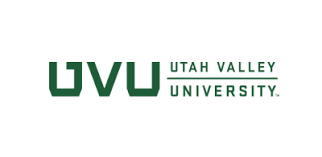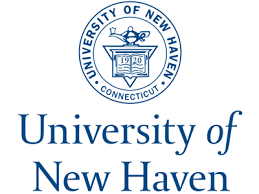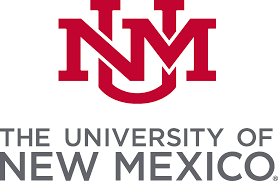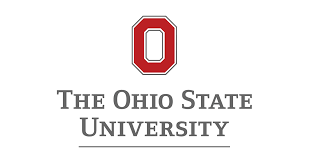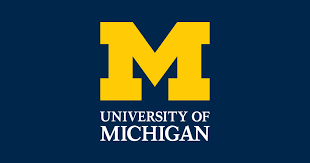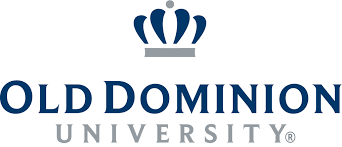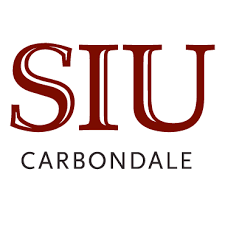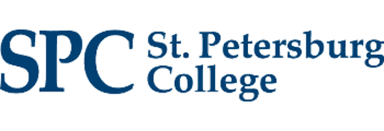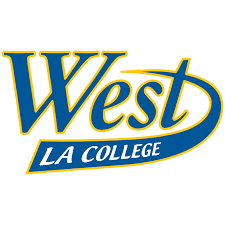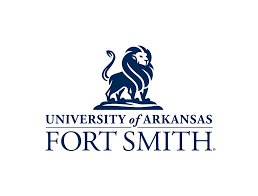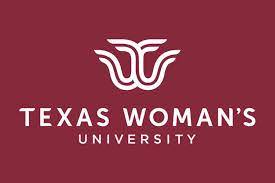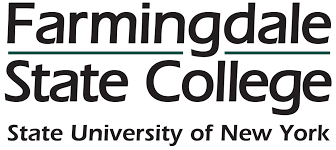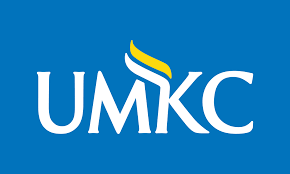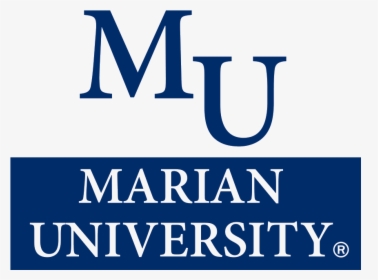An associate’s degree is an excellent first step if you want to become a dental hygienist. If you’re already practicing as a dental hygienist, earning a bachelor’s degree in dental hygiene can further your knowledge and career, in addition to paving the way toward a higher salary potential.
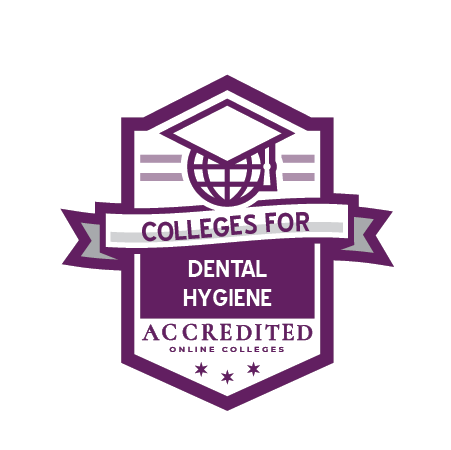
Whether or not you already have an associate’s degree, using an accredited online college for dental hygiene is an ideal way to gain more knowledge and theory-based experience that you can use to further your career. With this qualification under your belt, you’re poised to achieve some of the highest salary potentials in the industry. You will also be better prepared to advise your patients on appropriate oral health care.
Why Study for a Dental Hygiene Degree?
You may have already completed one of the many dental hygiene associate’s degree programs online. After all, these programs are more common than bachelor’s degrees. However, a BS in Dental Hygiene is becoming increasingly popular and more widely available. If you’ve got career aspirations beyond the four walls of dental surgery, then a bachelor’s degree could be for you.
But expanding your career options isn’t the only reason studying dental hygiene is a good idea. Even with an associate’s degree, you can earn competitive wages (more on that later). What’s more, some dental offices help associate’s-level dental hygienists get their bachelor’s degrees, which gives you a pathway to higher education with less out-of-pocket expenses.
Dental hygiene is a field that enables you to help others, too. You can teach children how to brush their teeth properly, help adults protect their teeth with sealants and fluorides, and give patients greater confidence in their smiles. This field also offers a traditional Monday-Friday work schedule, so you won’t have to work nights and weekends in most cases.
Beyond that, studying dental hygiene allows you to prepare for an interactive career that takes place in a comfortable environment. Though dental hygienists are often on their feet, it isn’t labor-intensive work. In other words, there are many reasons why studying for a dental hygiene degree can be worth it!
See Also: 20 Accredited Online Colleges in Dental Assistance
How Do I Become a Dental Hygienist?
As a minimum requirement, you need an associate’s degree to practice as a dental hygienist. These degrees usually take two years, on average, to complete. Most are found in technical schools, junior colleges, and universities. You’ll get clinical experience, take part in laboratory work, and get classroom-based instruction. Programs explore topics like medical ethics, anatomy, and periodontics. You might also take allied health courses that focus on general patient care.
If you’re a high school student, taking as many courses in the sciences, mathematics, and health education will benefit you as possible. If you’re already out of high school and lack courses like advanced biology, chemistry, and anatomy, you’ll likely have to complete those courses as a prerequisite for enrolling in a dental hygiene program. Other admission requirements for dental hygienist programs might include the following:
- A minimum GPA requirement, such as a 2.5 on a 4.0 scale
- A minimum ACT or SAT score
- Letters of recommendation from high school teachers or a school counselor
Remember, these are the minimum requirements for becoming a dental hygienist. In many cases, dental hygiene students like yourself might find that a bachelor’s degree is advisable.
See Also: 10 Accredited Online Colleges for Diagnostic Medical Sonography
Do Dental Hygienists Need a Bachelor’s Degree?
Whether or not you pursue a bachelor’s degree from one of the dental hygienist online colleges below depends on your desired career within dentistry. A dental hygienist in a clinical setting does not need to study beyond an associate’s degree level. However, if you have career aspirations outside of a dentist’s office, you may need to study at a higher level.
Bachelor’s degrees in dental hygiene focus more on the theory and knowledge behind areas like public health and education than online dental hygiene associate’s degree programs. In most cases, they also teach research methodology and other critical skills that you’ll need to work in roles within academics or public health.
So, if you want a more comprehensive selection of career opportunities beyond the clinical realm, you should consider excluding associate degree dental hygiene programs from your search to focus exclusively on bachelor’s degree programs.
Additionally, a bachelor’s degree is required if you want to continue your studies at the graduate level. For example, if you aspire to teach dental hygiene, you would likely need a bachelor’s degree, a master’s degree, and significant experience working as a dental hygienist.
See Also: 30 Accredited Online Colleges in Health Science
Careers for Dental Hygiene Majors
Your degree selection (and the course selection within the degree program) depend on the role you want to pursue in the future.
For example, as discussed earlier, if you have a dental hygiene school online associate’s degree, you won’t usually be eligible for roles in academia or research. Instead, you’ll likely need a master’s degree for those positions.
Many bachelor’s and master’s programs also offer career concentrations as part of the curriculum. This allows you to focus and specialize in a particular field. For example, you might specialize in providing dental hygiene services to children. Alternatively, you might specialize in working with older adults that utilize dentures.
But dental hygienists don’t just work in clinical or academic settings. Instead, with the proper education, training, and experience, you might also work in fields like:
- Public Health
- Dental Hygiene Research
- Dental Supplies Sales
- Dental Insurance Sales
What are the Best Dental Hygiene Accredited Programs?
Accredited Online College uses the most recent data from the Department of Education’s National Center for Education Statistics to determine the best accredited dental hygiene schools online you see below. Each program is scored individually. It’s then compared to all other universities offering that degree to determine the final score you see by each ranking.
Accredited Online College considers several factors to determine these rankings. These include the affordability, student-to-faculty ratio, and the number of on-campus and online programs. This gives you a much more thorough comparison of potential schools than if you Google “dental hygienist online schools accredited,” “dental hygienist schools online accredited,” or “online colleges dental hygienist.” Instead, you can see relevant details for top programs all in one place.
For more information about how we score accredited dental hygiene schools online, see our methodology page.
1. Utah Valley University
If you already have an Associate of Applied Science in dental hygiene, the next logical step might be to complete your Bachelor of Science. Utah Valley University offers this degree completion program online so you can get the necessary training to advance your career.
This program focuses on developing practical skills such as critical thinking and problem-solving. You’ll learn how to implement these skills in the clinical setting and gain essential insights into adapting to a rapidly changing environment. What’s more, you will explore current issues in oral healthcare, delve into future problems that might arise in dental health, and learn how to be a culturally competent practitioner as well.
Utah Valley’s program is highly flexible to adapt to your specific needs. You can keep your job while you study on your own time. In fact, about 80 percent of UVU’s students are employed, and more than one-quarter are over the age of 25.
This program is affordable, too. Utah residents pay in-state tuition, which is currently $130 per credit for online students. Out-of-state students pay $260 per credit. Many types of financial aid are available, including grants and other aid that need not be repaid. Nearly half of UVU students receive aid that doesn’t have to be paid back.
2. University of New Haven
The online degree completion program from the University of New Haven allows you to get the higher education you need to move into dental hygiene roles with greater responsibilities. This 30-credit program takes one or two years to complete, depending on your enrollment status as full-time or part-time.
You’ll take courses in:
- Dental Hygiene
- Oral Medicine
- Contemporary Oral Healthcare Delivery
You’ll study these and other topics in preventive oral care in an asynchronous format that allows you to work at your own pace. The program also includes an internship opportunity during which you can apply the new skills you’ve learned in a clinical setting.
Online tuition rates for accredited online dental hygienist programs at New Haven are $540 per credit. For students with financial needs, several sources of funding are available, including Federal Direct Loans, subsidized loans, and unsubsidized loans. Subsidized loans are awarded based on financial need, with the government reducing or covering the cost of interest due on the loan.
3. University of New Mexico
The next accredited dental hygiene program on our list is from the University of New Mexico. This program boasts some impressive accolades. For one, the Health Sciences Center is the state’s biggest healthcare treatment, education, and research center. The School of Medicine and School of Law have also been named in rankings by U.S. News & World Report.
UNM’s online dental hygiene post-licensure program is designed for dental hygienists with a valid dental hygiene license. Once enrolled, you can improve upon existing skills and develop new ones. You will also participate in various activities to enhance future career prospects. In fact, the skills you gain in this program might qualify you for employment in settings like:
- Public health
- Research
- Dental insurance
- Medical clinics
- Dental education
Your course of study can be on a full-time or part-time basis. Either way, all courses are 100 percent online. You must complete at least 30 credits at UNM to graduate.
The school’s accelerated online programs offer a range of courses at a standard per-credit tuition fee, regardless of whether you’re an in-state or out-of-state student. These fees are $431.66 for undergraduate students. There may be additional fees alongside tuition, including a technology fee.
4. Ferris State University
Ferris State University offers hundreds of degree programs and has hundreds of student organizations. This allows you to tailor your education to your specific interests while also pursuing extracurricular activities that interest you the most.
Ferris State offers other amenities, too. The student-to-faculty ratio is 16:1, and online learners like you enjoy the same rigorous learning as students on campus. The school also offers robust student support services, like career assistance, tutoring, and many different financial aid opportunities.
This program was created to support the American Dental Hygienists’ Association in advancing the field of dental hygiene. It does so through the provision of advanced degrees and leadership opportunities. The program includes research activities that could lead to discovering new oral healthcare theories. You can also develop new practices in the field.
This is a degree completion program. A minimum of 120 credits is required to graduate. However, you should already have about half of those as part of your Associate of Applied Science. Topics you’ll study include:
- Statistics in Healthcare
- Orientation to Medical Vocabulary
- Dental Hygiene Informatics
- Gerontology in Dental Hygiene
- Health Promotion and Wellness
Undergraduate tuition for U.S. and Canadian residents is $467 per credit hour for lower-division courses. Tuition is $505 per credit hour for upper-division classes.
5. Minnesota State University Mankato
Founded in 1868 with a cohort of 27 students, Minnesota State University – Mankato has undergone a lot of transformation. At least 50 programs, including both degrees and certificates, are available entirely online or as hybrid courses.
Minnesota State’s Dental Hygiene Online Degree Completion Program lets you finish your bachelor’s degree to open up new opportunities in the field of dental hygiene. Rather than working in dental surgery, you may find new career pathways in public health, sales, or education. You can prepare for these careers by taking courses like:
- Educational Methods in Dental Hygiene
- Dental Hygiene Care Planning
- Advanced Dental Hygiene Practice
- Decision-Making in Periodontology
- Oral Health Promotion Practice
MSU-Mankato is committed to non-resident undergraduate students who enroll exclusively in online courses. As a fully online learner, you may benefit from tuition charges no higher than those paid by current Minnesota residents. However, there may be additional fees accompanying the course. Currently, tuition is $367.90 per credit.
6. The Ohio State University
Programs at The Ohio State University have been consistently ranked highly by U.S. News & World Report. This includes a top-20 ranking among the Best Public Universities and a top-50 ranking among national universities. Many of OSU’s programs are highly ranked, too. This consists of top-10 rankings for undergraduate marketing and nursing programs.
Ohio State’s Dental Hygiene Baccalaureate Degree Completion Program is convenient and fully online. This Bachelor of Science program takes as little as four semesters to complete. As a licensed dental hygienist with an existing associate’s degree or certificate in your field, you’ll be able to develop new knowledge and gain real-world experience in a short time.
Sample courses include:
- Periodontal Therapy
- Current Concepts in Dental Hygiene
- Practice Management
- Oral Health Behavior Management
- Research Methods and Interpretation
This program also includes a practicum component in which you get hands-on experience utilizing your new knowledge and skills.
Regardless of your residency, all United States residents pay $405.88 per credit hour.
7. University of Michigan Ann Arbor
The University of Michigan-Ann Arbor has three separate programs for dental hygienists. The Dental Hygiene Undergraduate Program (BS) lasts two years and prepares you for leadership roles in oral healthcare. The Dental Hygiene Graduate Program (MS) also follows a two-year track and is designed for already-qualified graduates in the field.
However, the Dental Hygiene Degree Completion (BS) program features a fully-online option for licensed dental hygienists who want to pursue a BS. The program gives you a broad education with a number of electives and prepares you for more advanced career opportunities beyond clinical practice. This includes studies in:
- Professional Development
- Leadership
- Professional Communication
- Health Promotion and Disease Prevention
- Evidence-Based Practice
This program requires 120 semester credit hours to graduates. This includes 36 degree-completion credit hours, 60 hours from dental hygiene coursework, and 24 credit hours from transfer credits, where available.
Tuition is based on your level of study. So, if you’re a Michigan resident taking all lower-division courses, you’ll pay $7,608 per term for 12-18 credits. Non-resident students pay $24,656 per term. If you take all upper-division courses, you’ll pay $8,577 per term as a Michigan resident. Non-residents pay $26,394.
8. Old Dominion University
Old Dominion University’s dental hygiene program is specifically designed for licensed dental hygienists. As such, there are no clinical requirements. Instead, you complete all your courses online.
At ODU, you’ll take general education modules like language and culture, human creativity, and philosophy and ethics. You’ll also learn more about dental hygiene theory and practice, including research methods in:
- health sciences
- perspectives on dental hygiene
- telehealthcare technology.
This fully accredited program also allows you to complete an accelerated Master of Science. Doing so enables you to continue your studies after completing your BSDH by applying up to 12 credits of graduate work to your undergraduate and graduate degrees.
The tuition rate for online undergraduate courses is $374 per credit hour for Virginia residents. Non-residents pay $407 per credit. Old Dominion offers a discounted tuition rate for military members of $250 per credit.
9. Southern Illinois University
The Online Dental Hygiene Management/Education program at SIU is designed for dental hygienists with an associate’s degree. This specialization allows you to study educational theories, styles, philosophies, and techniques related to dental hygiene. The main goal of this program is to pave the way for a career in education or management in dental hygiene.
You’ll take a variety of courses, including:
- Oral Anatomy and Tooth Morphology
- Anatomy of the Head and Neck
- Dental Hygiene Concepts
- Dental Materials
- Oral Pathology
As an existing associate’s degree graduate, you’ll apply for the program via the Capstone option. This guarantees the completion of your studies in just 60 hours of additional coursework. Your acceptance depends on your high school GPA, SAT/ACT scores, and your college GPA.
Standard undergraduate tuition is $321.50 per credit hour. This rate is charged to both resident and non-resident students. Mandatory fees are not included in this figure.
10. Northern Arizona University
Next on our list of the best accredited dental hygienist schools is Northern Arizona University. With the lowest tuition and fee rates in the state of Arizona, the online degree programs at NAU feature some of the best value in the country. Degrees earned online at NAU are fully accredited and have the same level of quality as those delivered on campus.
For current dental hygienists with an associate’s degree, diploma, or certificate in dental hygiene, this program will complement and advance your clinical and theoretical knowledge in multiple areas, including management, sales, public health, and education. If you want to move into a new area of dental hygiene, this could give you the foundation you need.
Online undergraduate tuition at NAU is $11,160 per year. This does not include fees and associated expenses. If you’re employed by the Department of Defense, you’ll pay far less at $6,000 per year.
11. St. Petersburg College
The dental Hygiene BAS degree at St. Petersburg College is the first of its kind in the state. It’s also one of the largest programs of its kind in the entire United States. As a licensed dental hygienist, you could improve your career opportunities beyond entry-level positions and qualify for jobs in areas such as sales, public health, and education.
You’ll gain these skills in a completely online environment. There are no residency requirements, nor do you have to visit campus. Instead, you’ll learn in a robust online classroom where you take courses one at a time, each lasting six to eight weeks. Courses include:
- Contemporary Issues in Dental Hygiene
- Community Health and Epidemiology
- Practice Management for the Dental Hygienist
- Issues In Mental Health
- Management Information Systems
In addition to regular coursework, you must also complete a 14-week capstone course. This class is a summative experience that allows you to integrate your learning throughout the program with your specific career goals.
Tuition for courses at St. Petersburg College is split into two categories. Lower-division courses cost $111.75 for Florida residents or $386.90 for out-of-state residents. Upper-division courses are $122.70 if you’re in-state or $425.79 if you’re an out-of-state student.
12. West Los Angeles College
West Los Angeles College has been in the business of training dental hygienists since the late 1960s. Initially, the program only offered an Associate of Science degree in dental hygiene. However, in recent years, the college has expanded its degree offerings to include an on-campus Bachelor of Science in Dental Hygiene as well as a one-year online bachelor’s degree completion program.
You’ll take a breadth of courses in topics like:
- Dental Practice Management and Leadership
- Advanced Periodontal Seminar
- Law and Ethics for Dental Hygiene
- Health Careers Research and Practice
- Survey of Oral Health Care Systems
West LA College’s online Bachelor of Science in Dental Hygiene program was created for students who already have an associate’s degree in a dental hygiene field from an accredited institution. This is one of many online dental hygiene programs accredited by the Council on Dental Education and Licensure (CDEL) or the Commission on Dental Accreditation (CODA) from the American Dental Association (ADA).
At West LA, you pay $130 per unit. The degree completion program requires 40 units, so the total cost of tuition is $5,200.
13. University of Arkansas Fort Smith
If you already have an Associate of Applied Science degree in dental hygiene, this degree completion program might be for you. The University of Arkansas – Fort Smith’s AAS-BS completer can help you move into new career areas or prepare you for graduate studies. Either way, you’ll have a greatly expanded skillset to improve the quality of care for your patients.
This CODA-accredited program includes coursework in the following areas:
- Dental Anatomy and Occlusion
- Radiology
- Oral Embryology and Histology
- Periodontology
- General and Oral Pathology
You’ll also take courses in Pharmacology, Dental Nutrition, and Community Dentistry.
An additional requirement of this program is that you take part in clinical coursework that teaches you how to implement your newfound skills in a practice environment.
UAFS charges $175 per credit hour for in-state students and students who live in a state bordering Arkansas. If you live outside this region, you’ll pay $474 per credit.
14. College of Southern Nevada
The College of Southern Nevada is at the cheaper end of the scale, costing $118.50 per credit for in-state residents taking lower-division classes. Upper-division tuition is $192.75 per credit. Even if you live out of state, you’ll still only pay $124.00 per credit for lower-division courses and $203.50 per credit for upper-division classes.
This BSDH degree is an Education Specialist completion program. You’ll take core coursework that covers leadership, research, and public health principles. You’ll also take courses in teaching methodologies. Traditional general education coursework is also required in areas like philosophy, educational psychology, English, and communication.
As a graduate of this program, you’ll have the qualifications to pursue careers in many areas, including:
- Public Health
- Education
- Dental Administration
- Dental Management
- Dental Research
This is a cohort-based program, meaning you’ll progress with the same classmates until you graduate. It’s offered part-time to give you the flexibility you need to go to school without disrupting your work schedule.
15. Pennsylvania College of Technology
With tens of thousands of alumni spread across the globe and a graduate placement rate of around 97%, Pennsylvania College prepares you for success in the real world. This school has been named in multiple U.S. News & World Report rankings in the past, including in the top 20 among Best Value Schools, the top 15 among Regional Colleges North, and an eighth-place ranking among Top Public Schools.
Penn College offers its Bachelor’s in Dental Hygiene on-campus or fully online. Regardless of your chosen study medium, the program’s rigor is the same. You’ll cover courses like:
- Introduction to Global Health
- Dental Practice Management
- Dental Public Health
- United States Health Policymaking
- Healthcare Delivery Systems
Whether you’re an in-state or out-of-state resident, you pay the same in-state tuition rate. You can estimate your tuition, fees, and related expenses by using Penn College’s online tuition estimator.
16. Texas Women’s University
Texas Woman’s University offers several dental hygiene degrees, including a BS in Dental Hygiene, an Associate of Applied Sciences (AAS) to BS Dual-Enrollment Program, and an RDH-to-BSDH program. Only the latter two options are offered fully online.
The dual-enrollment online program allows you to simultaneously gain an AAS and a BS in Dental Hygiene with the convenience of studying at a time that suits you. The program is available to any student already enrolled at a partnering community college and in a dental hygiene program.
Your studies at TWU will prepare you for a number of career paths, including:
- registered dental hygienist
- dental sales representative
- dental hygiene instructor
You can complete the 120 required credits in four years. A minimum of 30 credits must be earned at TWU, and 36 upper-division courses are required.
Residents of Texas pay $7,140 per semester. Non-residents pay $19,740 per semester.
17. East Tennessee University
The Online Bachelor of Science in Dental Hygiene Degree Completion Program from East Tennessee State University instills expertise in a range of areas.
You’ll learn about the needs of geriatrics, community and rural health program design, and pain management. Other courses address the current approaches to:
- supportive periodontal therapy
- soft tissue management
- teaching strategies
Likewise, you’ll learn the skills needed to build an evidence-based practice.
There are no clinical experiences or on-campus requirements of any kind. Instead, you can learn at your leisure online. However, you’ll still take part in a rigorous curriculum that matches the on-campus program.
This 120-credit program takes four years to complete. The program follows the cohort model so you can build professional relationships with your classmates over the course of the program.
The in-state tuition rate is $4,837 per semester for undergraduate work. If you live in select counties in Virginia and North Carolina, you will also qualify for the in-state rate. Non-resident tuition is $5,242 and applies to you if you live in one of the states bordering Tennessee (but don’t live in a county that borders ETSU’s campus). If you live in any other state, tuition is$6,742.
18. Farmingdale State College
The online Bachelor of Science degree in Dental Hygiene from Farmington State College is tailored to transfer students and AAS-level dental hygienists. In fact, you have to be one or the other to qualify for the program!
This program is entirely online. There are no clinical requirements, and campus visits aren’t required, either. But, you take the same classes and earn the same degree as students who go to school on campus.
You’ll take foundational courses in areas like public health, teaching, and research. You must also complete a capstone practicum course during which you gain a better understanding of how your knowledge applies in a dental hygiene setting. You can also participate in an internship, should you desire. The internship can be done at a location of your choice, from educational institutions to hospitals to public health programs.
Upon graduation, you might qualify for positions in:
- Dental Insurance
- Pharmaceutical Sales
- Clinical Research
- Dental Hygiene Education
- Public Health
If you’re a New York resident, you’ll pay $3,535 per semester for tuition. Out-of-state tuition is $8,490 per semester.
19. Massachusetts College of Pharmacy & Health Sciences
The Bachelor of Science in Dental Hygiene from the Massachusetts College of Pharmacy & Health Sciences is the longest continually running program of its kind in the United States. It’s also a degree completion program. This means you should already have an associate’s degree and be a licensed hygienist before you enroll.
The entire program is completed online except for one required campus visit prior to enrollment. This visit aims to familiarize you with the program and introduce you to your professors and classmates. You’ll also get an introduction to the curriculum, which includes courses in:
- Oral Health Research Methods
- Oral Health in Special Care Populations
- Public Health and Policy
- Planning Health Education and Promotion
- Evidence-Based Dental Hygiene Practice
Once you complete this program, you’ll be qualified to seek dental hygiene careers with more responsibilities and higher pay. Likewise, you can also build on your education in a graduate program in this field.
Tuition is $815 for in-state and out-of-state students alike. Additional fees apply.
20. University of Missouri-Kansas City
The RDH-to-BSDH program at the University of Missouri-Kansas City is open to any dental hygienist with a credential in the field. You can start your online study during any semester throughout the academic year and apply solely online.
This program’s courses emphasize evidence-based practice in clinical, behavioral, and biomedical sciences. When accessed online, some courses are available 24 hours a day, while others require you to be online at a given time. UMKC also has the only public dental school in Kansas or Missouri, which provides the perfect place for practice.
If you live in Missouri, you’ll pay in-state tuition of $327.90 per credit. Kansas residents pay slightly more at $333.80. Residents of 15 nearby states receive a Heartland Rate of $500.50 per credit. Alternatively, you’ll pay around $921.60 per credit as an out-of-state student.
21. Oregon Institute of Technology
Oregon Tech Online offers a Bachelor of Science in Dental Hygiene for professional dental hygienists. Graduating from this program allows you to advance your career or open up additional opportunities in dental health.
In addition to a general education core of courses, you’ll also take public health, education, and management courses. Other classes include:
- Dental Ethics
- Emerging Oral Health Topics
- General and Oral Pathology
- Head and Neck Anatomy, Histology, and Embryology
- Introduction to Dental Hygiene
Eligibility requires you to meet a number of conditions. You must have already graduated from an accredited program in dental hygiene or have approval from your department. You must also complete the Dental Hygiene National Board Examination. Additionally, you need to be licensed (or eligible for licensure) in your state of residence and meet Oregon Tech’s admissions criteria.
Oregon Tech Online’s tuition is $294 per credit for both in-state and out-of-state students. Every online course also has a distance delivery fee of $65, which covers the cost of a “seat” in the learning management system, Blackboard. This is how you’ll get access to your course content and submit your assignments.
22. Pueblo Community College
Online learning is popular at PCC, especially for part-time learners; in fact, around 70% of the student body attends classes part-time.
Pueblo Community College’s Dental Hygiene Bachelor of Applied Science program is geared toward licensed dental hygienists with an associate’s degree from a U.S.-accredited college or university. Career tracks that result from this program include roles within education, public health, sales or research, and program administration.
Some of the classes you might take include:
- Topics in Dental Public Health
- Critical Review of Healthcare Research
- Social and Behavioral Determinants of Oral Health
- Pedagogy in Health Professions
- Advanced Careers in Dental Hygiene
Online courses are taken in eight-week tracks and are taught by master-level instructors who are specifically certified for online teaching.
The BAS completion degree takes four semesters and includes 27 credits. Each online credit hour costs between $263.20 and $401.25, depending on your residency.
22. Marian University Wisconsin
The online Bachelor of Science in Dental Hygiene from Marian University Wisconsin is a degree completion program. If you enter the program with 60 or so credits from an Associate of Applied Science degree, you will only need about two years to complete your bachelor’s.
You must have an associate’s degree and a current dental hygiene license to apply. Once admitted, you can transfer up to 90 credits. This generous transfer policy applies to resident and non-resident students.
Some of the classes you’ll take include:
- Management of Oral Healthcare Delivery
- Dental Hygiene Educational Methodology
- Translating Research into Dental Hygiene Practice
- Leading and Managing Teams in Healthcare
- Health Equity in Diverse Populations
As is common for degree completion programs, a capstone project is also required to graduate. The capstone is an independent project that you can tailor to your specific interests.
Tuition is $494 per credit for undergraduate studies, regardless of residency.
23. Vermont State University
If you’re a hygienist with an associate’s degree, this two-year program will upgrade you to a bachelor’s. With fully online study, it’s a good choice if you want to continue working while you study toward your qualification. After graduation, you’ll have greater career and educational opportunities than peers with an associate’s degree.
Your studies explore a number of mandatory and elective modules. You’ll learn things like evidence-based decision-making, an introduction to chemistry, and human growth and development. You’ll also take an advanced periodontics course in your first year. In the following year, you’ll look more in-depth at modules like advanced oral health and bioethics.
You need 120 credits to complete this degree, though you should have about half of those done already, thanks to your associate’s degree.
Tuition is $698 per credit. This includes $416 in general tuition and $282 in program tuition per credit.
24. Community College of Denver
As a registered dental hygienist, this program allows you to advance your existing education and experience to gain more comprehensive employment options. Each program map is individualized. While we can’t provide you with all the modules you’ll study, you’ll get a highly-specific program of study that might include courses in:
- Dental Hygiene Business Administration
- Teaching Strategies and Methods for the Dental Hygiene Educator
- Diversity and Cultural Competence Research: Relationship to the Delivery of Oral Health
- Advanced Careers in Dental Hygiene
- Oral Health Promotion
The dental hygienist program at CCD is accredited by the Higher Learning Commission and is offered entirely online. As a Colorado resident, you’ll pay $260.40 per credit hour. If you’re a non-resident student, you’ll pay $641.80.
It’s worth bearing in mind that there are additional fees you’ll need to pay in this program. For example, expect to pay around $750 for books, plus two fees of $40 each for registration with regulatory bodies. This membership is encouraged so that you’re updated on new policies and news relating to your field.
25. Georgia Highland College
Anyone with an accredited dental hygiene degree and a current license to practice as a dental hygienist in the U.S. can apply for this bachelor’s degree completion program. It’s delivered fully online, except for a mandatory internship. However, the internship can be completed in your local community for convenience.
As part of the curriculum, you’ll take eight required courses, including:
- Current Concepts in Dental Hygiene
- Special Populations
- Supportive Periodontal Therapy
- Foundations of Research
- Leadership and Management in Healthcare
- Healthcare Education, plus an internship
The core curriculum is 60 hours, in addition to 60 credit hours of dental hygienist courses.
For admission into the program, you must provide your current BLS card, your current RDH license, and a copy of your driver’s license. Applications must be submitted by May 1 for the fall semester.
In-state tuition at Georgia Highlands College is just $95 per credit hour. You’ll pay $359.67 as a non-resident student.
Frequently Asked Questions
What Does a Dental Hygienist Do?
As a dental hygienist, you will be trained to use various tools to carry out routine, minor procedures on the teeth. For example, you may remove stains and plaque, carry out ultrasounds, or polish patients’ teeth. These roles require extensive training and knowledge of other areas like radiography.
You may also advise patients on better care for their teeth and gums, such as improving diet and nutrition. This might also involve teaching children how to brush their teeth more effectively or showing adults how to floss properly.
Dental hygienists work closely with dentists, providing information about patients’ oral health. You may also use hands-on techniques like fluoride treatments, apply sealants, or perform thorough flossing as preventative measures for oral health. If there are suspected bone or gum health issues, you might perform x-rays or take teeth molds to support diagnosis and care recommendations.
What are the Licensing Requirements for Dental Hygienists?
Getting a college education is just one step toward becoming a qualified dental hygienist. There are licensing requirements, too. Each state mandates these requirements, and they vary from one state to another. In many cases, these requirements might be satisfied by providing evidence of the following:
- Completion of a regional or state-level clinical board examination
- A diploma from a Certified Dental Assistant-accredited program
- Successful completion of the National Board Dental Hygiene Examination – this is one of the most critical requirements for licensure and takes the form of a lengthy written examination.
- Evidence of having successfully passed current CPR (Cardiopulmonary Resuscitation) training.
To maintain licensure on an ongoing basis, you must regularly complete continuing professional education and development requirements. These requirements are set at the state level and vary from one state to the next. The American Dental Hygienists’ Association (ADHA) maintains a state-by-state database of requirements for renewing your license.
What Job Growth is Expected for Dental Hygienists?
The need for qualified dental hygienists within the U.S. is predicted to rise by nine percent through the end of this decade, according to the Bureau of Labor Statistics (BLS). This percentage is beyond the average growth rate for all other occupations within the United States, which is around five percent, according to the same figures.
However, it’s worth researching how these figures translate at a state level, as not all states expect to see the same level of job growth in the coming years. For example, highly populated states like California, Texas, and Florida already have higher numbers of dental hygienist positions. These states will likely see more significant job growth in this field in the coming years than in lesser-populated states.
What’s more, some cities might have a higher-than-average need for dental hygienists. Largely populated areas like Los Angeles, San Diego, New York, and Miami will likely have more positions than smaller cities and towns.
What are the Salary Expectations for Dental Hygienists?
As of April 2023, the median annual salary for dental hygienists is $77,810. The lowest-paid 10 percent of earners in this field make less than $60,100 per year. In contrast, the highest-paid ten percent earn over $100,200 per year.
There are varying reasons for this disparity. For example, dental hygienists in dentist offices earn the most at $77,810 per year. Hygienists in physician’s offices earn slightly less at $77,290. The lowest salaries are for dental hygienists in government service, with an average salary of around $64,110. So, one factor that influences your potential earnings is simply where you work.
Salary expectations also depend on the level of education that you’ve attained. If you have a master’s degree and five years of experience, you will likely make more money than if you have a bachelor’s degree with five years of experience. The same is true of how long you’ve been in the field – workers with more experience tend to earn more money.
The role you choose will impact your earnings as well. For example, you might make around $80,000 per year as a dental hygienist in a dental office. But, if you work at a specialist office, like a pediatric dentist, you might make more money due to having a highly specific set of skills.
The geographic location in which you work affects your salary, too. Several states, like Alaska, Washington, and California, offer the highest average salaries in this field at well over $100,000 per year. By contrast, states like Kentucky, Tennessee, and Alabama have some of the lowest average salaries that range from $51,130 to $72,500 per year.
Take these factors into consideration as you prepare for your dental hygienist career. Doing so lets you focus your studies on your areas of interest while maximizing your earning potential.
If you want to pursue higher education, explore the 30 Easiest Accredited Online College Programs for Undergrads and the 30 Top Fastest Accredited Online Graduate Colleges!

